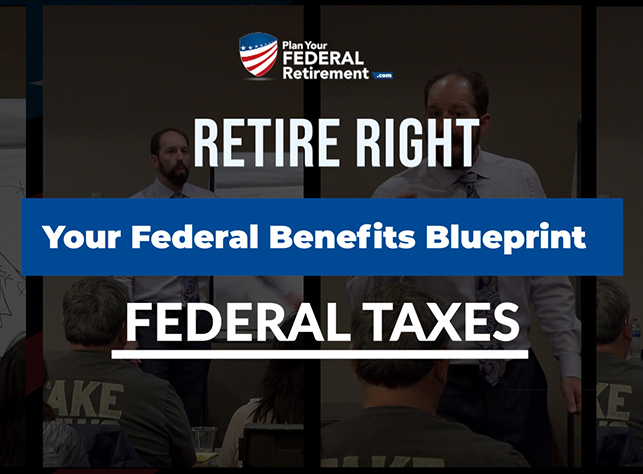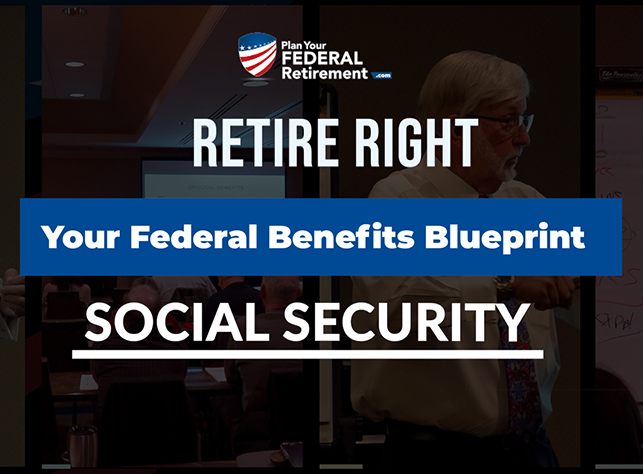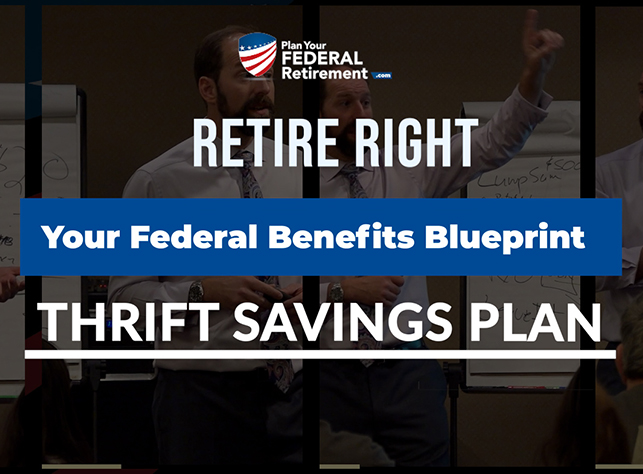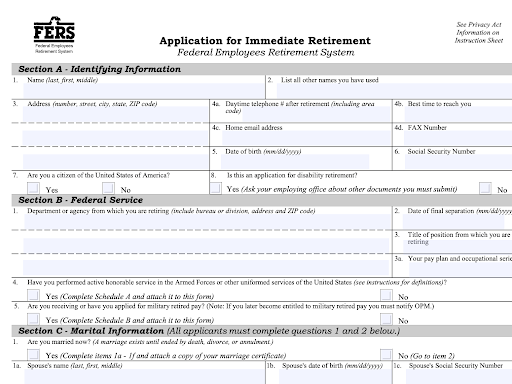Item 2: Your Official Personnel File
You need a complete and thorough copy of your Official Personnel File (OPF) in your FERS Go Bag—all of it, all the documents, everything.
Remember that when you are in, you are a guest, but when you are out, you are a pest.
The Official Personnel File (OPF) and the Certified Summary of Federal Service. These documents play a crucial role in the retirement process and ensuring you have accurate records of your federal service.
Official Personnel File (OPF)
Your Official Personnel File, now commonly referred to as the electronic Official Personnel Folder (eOPF), is a comprehensive record of your federal employment history. Here’s what you need to know about accessing and preserving this important information:
Accessing Your eOPF
- Log in to your agency’s eOPF portal using your eOPF ID and password.
- If you’ve forgotten your login credentials, use the “Request Your eOPF ID” or “Request a New Password” links on the login page.
Downloading Your Entire eOPF
To save a complete copy of your eOPF:
- Navigate to the “My eOPF” tab.
- Click on “My eOPF Print Folder.”
- Select “All” to include all documents.
- Click one of the print buttons.
- Wait for the print request to process (this may take some time).
- Once ready, click “View” in the Action box.
- Save the file as a PDF and ensure you have a copy not just on your work computer.
- Open the PDF and enter the provided password.
Important: Download your eOPF before leaving any federal position, as your access may be revoked once you’re no longer on the payroll. We have seen a tremendous increase in Feds telling us, “Hey, I can’t access my information anymore,” when they take the deferred resignation—well, of course, you resigned. It seems like a low IQ step, but trust is critical.
Certified Summary of Federal Service SF-3107
If you have a copy of your SF-3107 that your agency—not you—has completed, this will help OPM process your file faster, as someone has already audited your records. We recommend that Feds, regardless of where they are in their careers, do this every 3-5 years. It’s just good housekeeping.
By having a copy of your CSFS SF-3108, you can remedy any mistakes in your file before you want/need to retire.
Keep in mind that for many federal employees they started their careers before Personnel Files were electronic. They had to be scanned from paper files into a computer system – inevitably, mistakes will have been made. Let’s ensure your file isn’t one of those mistakes.
The Certified Summary of Federal Service is a crucial document in your retirement application process. Here’s what you need to know:
Purpose
This document provides a comprehensive overview of your entire federal service history, which is used to calculate your retirement benefits.
Form Details
- For CSRS employees: Use Standard Form 2801-1 – a few are still out there.
- For FERS employees: Use Standard Form 3107-1 – most of the federal, civilian workforce.
Process
- Your personnel office will prepare this form.
- You’ll need to review and sign it to certify its accuracy.
Verification
- Ensure all your federal service is documented in your OPF.
- If any service is missing documentation, work with your personnel office to add it.
- Be aware that missing documentation may delay your retirement application processing.
By understanding and properly managing these documents, you’ll be better prepared for a smooth transition into retirement. Remember to keep copies of all important documents for your personal records off your government-issued computer that you must turn in when you stop working.
As a federal employee, you have limited ability to update information directly in your electronic Official Personnel Folder (eOPF). It takes time to update your eOPF, which is why the earlier you start this process, the better.
This is particularly important if you have ever had a
- Break in Service
- Transferred Agencies
- Had Temporary Time
However, there are some steps you can take to ensure your information is accurate and up-to-date:
Reviewing Your eOPF
- Log into your agency’s eOPF portal using your eOPF ID and password or PIV/CAC card3.
- Review the documents in your Permanent and Temporary folders for accuracy1.
Updating Emergency Contact Information
If your agency has enabled this function:
- Click “My Profile” from the main menu.
- Select the “Emergency Data” tab.
- Edit the fields as needed.
- Click “Apply” to save your changes.
Requesting Corrections
If you find inaccurate or erroneous information in your eOPF:
- Note the specific document and error.
- Contact your agency’s Human Resources (HR) office to request a correction.
Please be kind to your HR Department. They were not the ones who probably made the original error (as most HR’s were downsized or centralized to one location) and they’re taking over the work of their predecessors.
Being nasty with your HR department will not help you resolve matters. You get more with honey than vinegar.
For Former Federal Employees
If you’re no longer a federal employee and need to correct your eOPF, this will be a process, but it is achievable.
Here is how you can start that process:
- Submit a written request to:
U.S. Office of Personnel Management
Office of the Chief Information Officer
Chief, Records Management and Data Policy
1900 E Street, N.W.
Washington, DC 20415-7900 - Include in your request:
- Your handwritten signature
- Social Security Number
- Date of birth
- Name of last agency where employed
- Approximate date when you left Federal service
- Details of the error you wish to be addressed.
Remember, while viewing your eOPF documents, you cannot modify them directly. For former employees, any changes or updates must be processed through your HR office or OPM.
If every federal employee could correct their eOPF, they would, and perhaps not all would do so legitimately. We all know someone who might abuse this, so OPM makes it very clear: only your agency, not you as the employee, can make corrections.
Feeling overwhelmed by all your benefits and not sure where to start?
We’ve got you covered.



Micah Shilanski 00:00
We’ve heard me say it before, and I’m gonna say it again. One of the best benefits you have is your federal employee health insurances, and I look on the outside in with my green colored lenses of envy, looking at how good your health insurance is, I can definitely say that, but you gotta understand the rules to keep it into retirement, and we have a really good question that came in from Matt, which I can’t really tell based on his comment if he’s going to be able to keep that health insurance or not, so if you’re interested in the answer to this question, then stay tuned for this FERS Federal Fact Check. Hi, I’m Micah Shilanski with Plan Your Federal Retirement. We have a good question that came in from Matt today talking about his health insurance. Let’s take a peek at his question first, let’s go through a couple scenarios after that. He says, my wife is a federal employee and will retire next year. She’s gonna be 50 years old, and I’m gonna be 58 when she retires, I’m on her health insurance, so we wanna continue having that post retirement. Can I stay on her health insurance without her having to take the survivor benefit? I understand that if she dies, I am no longer covered, but if she lives, we not take any survivor coverage? Can I remain on her health insurance as long as she is alive? Mark, this is an excellent question. I’m sorry, Matt, this is an excellent question that you have, so let’s break it down a couple different ways. Number one, let’s talk about the rules for retirement. Because you say she’s going to retire, but I don’t clearly see if she’s eligible to retire under an immediate retirement because she has two requirements that she has to meet, in order to keep health insurance to retirement, you have two requirements that you have to meet. Number one, she must retire with the eligibility of an immediate pension, that’s our first rule, right? So in that case, what are the rules? The rules under a normal FERS are, you got to be your Minimum Retirement Age and have at least 30 years of federal service. Or you got to be age 60 and have at least 20 years of federal service. Or you could be age 62 and have at least five years of federal service. Now those are the rules. Now, if she has potentially a special provisions, eligible for early retirement, maybe there’s an early out, then we could talk about those rules are, you can be any age and at least 25 years of service, or you could be age 50 and at least 20 years of service, so you made the comment that she’s 50 years old and she’s going to retire, it leads me to believe that she’s under special provisions, right? Or, you know, there’s an early out that you’re able to take advantage of, but she has to go out under this set of rules in order to be under an immediate retirement, and that’s the first requirement. Now, if you have 20 years of federal service and you’re 50 years young, you’re not special provisions, there’s no early out available that’s going to happen, there’s no RIF, etc. Can you retire? Absolutely, are you going to get an immediate pension? No, because if I’m just 50 and I got 20, 30, 40, years of service, I don’t know how 40 years would work at 50, but anyways, you get the concept, it doesn’t matter how much service you have at 50 years young, unless you’re special provisions or there’s an early out opportunity, you’re not eligible for an immediate retirement, this would be a deferred retirement, and in a deferred retirement, you lose your health insurance for a life, this is not a good option, really, be careful before you go down that. So that’s the first requirement she has to retire with the eligibility of an immediate pension, so Matt, question for you, does she meet that requirement? Number two, she must be in FEHB for five years prior to retirement, so great news, she’s gonna retire this next year, rewind the clock, five years has she been an FEHB? Probably most federal employees are in it for a long time, but that’s just this thing to check. Then it gets to your questions, can you stay on her health insurance? Absolutely, if she has FEHB, as long as she selects a family plan or self plus one, then you’re eligible to maintain on that coverage, but you brought up a point, and I have a little concern, I don’t know your situation, you understand that you are not wanting to leave a survivor benefit, and you are correct in your question or your statement that says, if she passes away and she does not leave a survivor benefit, her health insurance dies when she does, right? That means you lose that FEHB for life. That’s a pretty big risk, now, maybe have is taken care of somewhere else, maybe you don’t need the insurance after that, I don’t understand, right? Because there’s a lot of things in your situation I don’t know, but it’s definitely not something that’s kind of ooh, I’d be really careful before you sign on that paperwork and give that benefit up for life, God forbid, if she passes away, that you’re going to lose out on that, so it’s definitely something to think about, but if she retires, you absolutely can stay on her insurance as long as she’s eligible to keep it, it’s a great question. If you have questions like this that you need answers to, then jump on our website planyourfederalretirement.com and you could be featured in our next FERS Federal Fact Check. Till then, Happy Planning!




